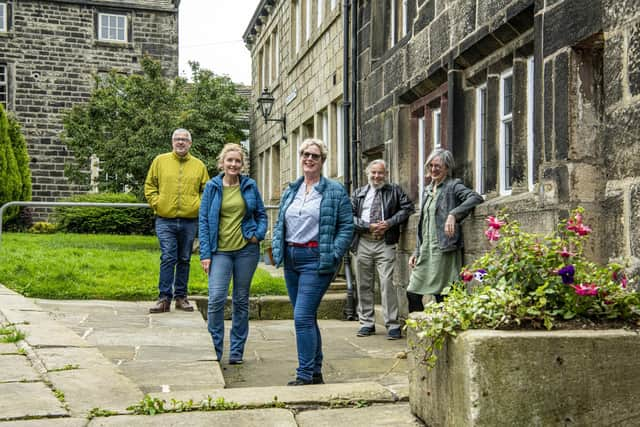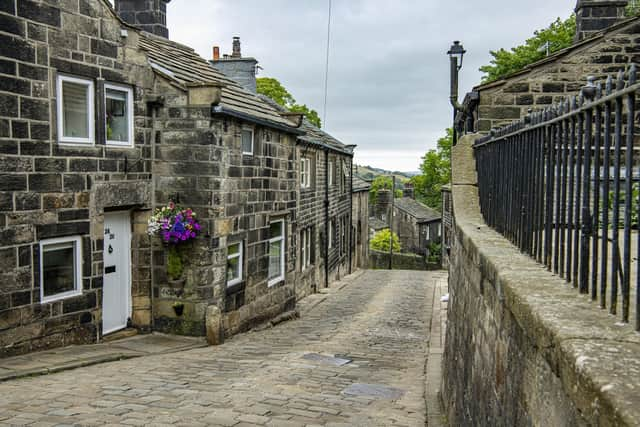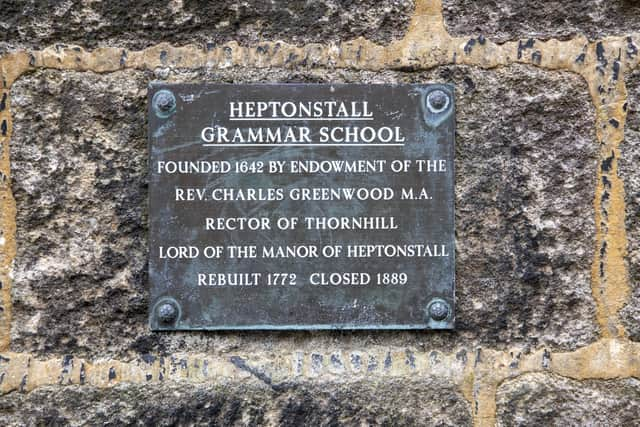Yorkshire's The Gallows Pole village of Heptonstall ready to share fascinating history as volunteers re-open museum
Housed in a historic 17th-century building that was once the Calder Valley village’s grammar school and then a branch of the Yorkshire Penny Bank, it had been a Calderdale Council-run museum for 50 years before the authority eventually listed it for asset transfer as funding pressures began to bite.
Expressions of interest were sought from community groups, and it did not take long for the Friends of Heptonstall Museum to muster and offer to take on the building. This month they will be handed the keys.
Advertisement
Hide AdAdvertisement
Hide AdWhat was an ‘old-fashioned’ set of displays centred around the old schoolroom furniture and with limited space and restricted opening hours will become an attraction that tells the stories of this fascinating village near Hebden Bridge, best known as the home of the Cragg Vale Coiners, who committed a notorious forgery in the 18th century and whose lives are the subject of an upcoming BBC period drama, The Gallows Pole, based on local author Benjamin Myers' novel.


“We ran a survey asking if there was interest in keeping the museum open, and the response was overwhelming. It will celebrate the history of the Calder Valley - this is a special village with an abundance of stories,” said Linda Maynard, one of the Friends volunteers who will run the attraction.
They have consulted other community-owned museums, such as Ilkley Manor House and Colne Valley, for advice on how to operate their new asset.
“It closed because of affordability really - it was always on the periphery compared to the main Calderdale museum collections at Shibden Hall and the Bankfield. The items relating to the grammar school, such as the books and headmaster’s lectern, are remaining with the building.


Advertisement
Hide AdAdvertisement
Hide Ad“In the past, there was one big room, where the school had been, and a smaller room and it was a bit old-fashioned. The displays covered every time period, and it was quite crowded and restrictive with large display cabinets.
“We are going to focus on one aspect at a time and have a revolving programme that will also give us space to hold plays and events. We will drill a bit deeper into stories like the Coiners, and find out what it was really like to live here back then, and what happened to the people who played a smaller role in the affair.”
Despite a lack of paid staff, the museum will actually now open for four days a week rather than two, and throughout the year.
“We are hoping for a visitor boom when The Gallows Pole is on TV, and before the museum wasn’t really advertised. We will open for a longer period and have evening events too. It could be a burden for the group, but it actually gives us more flexibility than the council had.


Advertisement
Hide AdAdvertisement
Hide Ad“It could be wonderful. We are heading into the unknown and have taken a leap of faith.”
Heptonstall Museum is a Grade II-listed building dating back to 1600, when it was built as a warehouse. It was converted into a school in 1771 and closed in 1889. The Yorkshire Penny Bank occupied it from 1898 until 1954, and it became a museum in 1972.
BBC crews used the interiors of the old schoolroom to film The Gallows Pole during the museum's recent period of closure.
The 'abundance of stories' from Heptonstall
A Civil War battle was fought at Heptonstall in 1643, and over the next century the village's weaving industry developed. Weavers used hand looms and worked from their cottages, which were built with large upper windows to let light through.
Advertisement
Hide AdAdvertisement
Hide AdThe Cragg Vale Coiners' leader, David Hartley, is buried in the churchyard - he was executed in York for his role in the notorious counterfeiting operation that had a major impact on the English economy.
The writer Sylvia Plath is also at rest in Heptonstall - her husband, Ted Hughes, was from Mytholmroyd.
In the mid-1980s residents campaigned to have the original stone paving retained and restored, and the 19th-century cast-iron gas lamps were also saved.
Other history on show is Stag Cottage, built in 1580, the doorway to a dungeon once used as a lock-up and a pinfold that once held livestock.

